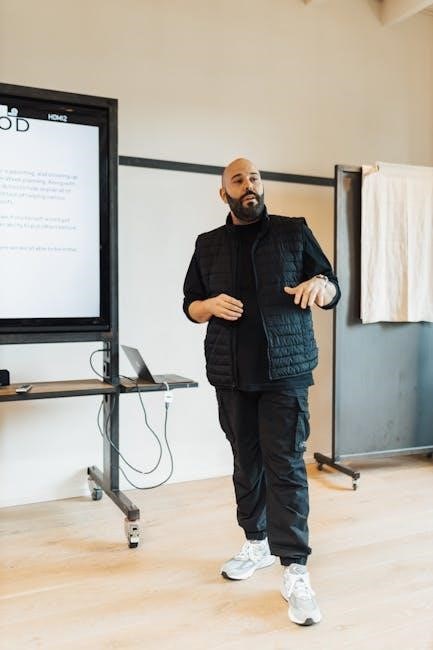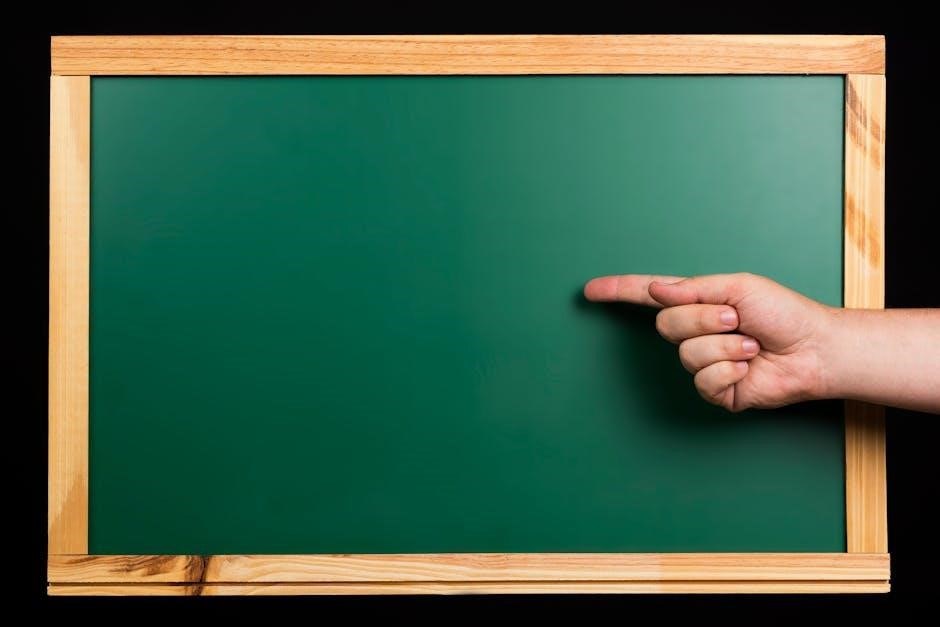The JROTC program is a congressionally mandated youth program emphasizing citizenship, service, responsibility, and accomplishment. It develops leadership skills through education and training, utilizing retired military personnel as instructors. The curriculum covers leadership, civics, wellness, and life skills, fostering character development in cadets.
Overview of the JROTC Program
The Junior Reserve Officers’ Training Corps (JROTC) is a multifaceted program implemented in high schools, designed to cultivate leadership skills and promote responsible citizenship among students. With a rich history and a commitment to developing well-rounded individuals, JROTC offers a unique blend of academic instruction, leadership training, and extracurricular activities. The program’s core objective is to motivate young people to become better citizens by instilling values such as character, leadership, service, and personal responsibility. JROTC is not a direct pathway to military service but rather a comprehensive leadership development program.
Taught by retired officers and non-commissioned officers, the JROTC curriculum encompasses various subjects, including leadership theory, civics, geography, global awareness, health, wellness, and U.S. history. It emphasizes performance-based, learner-centered education, encouraging active participation and critical thinking. JROTC integrates with Career and Technical Education (CTE) models, offering pathways to various career fields. The program’s success is measured through defined outcomes that assess cadets’ knowledge, skills, and personal growth. JROTC aims to equip students with essential life skills, fostering success in college, careers, and their communities. The curriculum includes instruction in the history, organization, and functions of the Army. Leadership training is an essential part of the curriculum.
Mission and Goals of JROTC
The central mission of the Junior Reserve Officers’ Training Corps (JROTC) is to motivate young people to become better citizens. This mission is achieved through a comprehensive program focused on developing leadership skills, promoting character education, and instilling a sense of civic responsibility. JROTC aims to cultivate well-rounded individuals equipped to succeed in various aspects of life, beyond just military service. One of the primary goals of JROTC is to develop leadership potential in cadets. Through structured training and practical exercises, students learn essential leadership principles, communication skills, and teamwork strategies.
The program emphasizes the importance of integrity, respect, and responsibility in leadership roles. JROTC seeks to instill a strong sense of citizenship and service to the United States. Cadets learn about the rights and responsibilities of citizens, the importance of community involvement, and the value of contributing to the greater good. The program encourages cadets to participate in service projects and community initiatives, fostering a lifelong commitment to civic engagement. Character development is a cornerstone of the JROTC program. Cadets are taught to uphold ethical values, make sound decisions, and demonstrate integrity in their actions. The program promotes self-discipline, respect for others, and a commitment to personal excellence. JROTC strives to equip students with essential life skills applicable to various situations.
Leadership Education and Training (LET) Curriculum
The Leadership Education and Training (LET) curriculum forms the core of the JROTC program, providing a structured framework for developing leadership skills and character traits in cadets. This curriculum is designed to be progressive, building upon foundational knowledge and skills as cadets advance through each level of instruction. The LET curriculum typically consists of four core courses, LET 1 through LET 4, each tailored to a specific grade level and experience level of the cadets. LET 1 serves as an introduction to JROTC, covering basic leadership principles, citizenship, and personal development. Cadets learn about the JROTC program, its mission, and the importance of discipline and teamwork.
LET 2 builds upon the foundation established in LET 1, delving deeper into leadership theories, communication skills, and problem-solving techniques. Cadets engage in practical exercises and simulations to apply their knowledge and hone their leadership abilities. LET 3 focuses on advanced leadership concepts, decision-making strategies, and team management skills. Cadets assume more significant leadership roles within their JROTC units, gaining valuable experience in planning, organizing, and executing tasks. LET 4, the culminating course, emphasizes leadership ethics, strategic planning, and organizational management. Cadets serve as mentors and role models for younger cadets, applying their leadership skills to guide and inspire others.
LET Core Course Structure and Content
The LET core courses in the JROTC program are structured to provide a comprehensive and progressive learning experience for cadets. Each LET level builds upon the previous one, ensuring a solid foundation of knowledge and skills. The content is designed to be engaging, relevant, and applicable to real-world situations, fostering leadership development and personal growth. LET 1 typically covers topics such as introduction to JROTC, leadership principles, citizenship, communication skills, and personal responsibility. Cadets learn about the history and organization of the Army, as well as the importance of values and ethics.
LET 2 delves deeper into leadership theories, team building, conflict resolution, and decision-making. Cadets explore different leadership styles and learn how to adapt their approach to various situations. LET 3 focuses on advanced leadership techniques, strategic planning, project management, and mentorship. Cadets develop the ability to lead and motivate teams, as well as to solve complex problems. LET 4 emphasizes leadership ethics, organizational management, public speaking, and community service. Cadets refine their leadership skills and prepare for future leadership roles in college, career, and community.
Character and Leadership Development
Character and leadership development are central to the JROTC program, with a focus on instilling values such as integrity, respect, responsibility, and selfless service in cadets. The program emphasizes the importance of ethical decision-making and moral courage, preparing cadets to be principled leaders in all aspects of their lives. Cadets participate in activities and discussions that promote self-awareness, empathy, and emotional intelligence, enabling them to understand and connect with others.
The JROTC curriculum incorporates leadership theories and models, providing cadets with a framework for understanding effective leadership practices. Cadets learn about different leadership styles, such as transformational, servant, and situational leadership, and how to adapt their approach based on the needs of the situation. Through experiential learning activities, cadets have the opportunity to practice their leadership skills in a safe and supportive environment. They learn how to motivate and inspire others, build effective teams, and resolve conflicts constructively. The program also emphasizes the importance of communication, both oral and written, as a key component of effective leadership.
Citizenship and Service to the United States
JROTC emphasizes citizenship and service, instilling values of patriotism, civic responsibility, and community involvement in cadets. The curriculum includes instruction on the history, principles, and structure of the U.S. government, fostering an understanding of democratic processes and the rights and responsibilities of citizens. Cadets learn about the importance of active participation in their communities and the value of contributing to the common good.
The JROTC program encourages cadets to engage in service-learning projects, providing opportunities to make a positive impact on their schools, neighborhoods, and communities. These projects allow cadets to apply their leadership skills, work collaboratively, and develop a sense of civic duty. Cadets also participate in activities that promote national pride and respect for the flag, the Constitution, and the military. Through JROTC, cadets develop a strong sense of belonging and a commitment to serving the United States.
The Role of Retired Military Personnel as Instructors
Retired officers and non-commissioned officers serve as JROTC instructors, bringing invaluable experience and expertise to the program. These instructors are certified by the U.S. Department of the Army to teach leadership and character development, providing cadets with real-world insights and mentorship. Their military background allows them to impart discipline, respect, and a strong work ethic, fostering a positive learning environment.
Instructors act as role models, sharing their knowledge of military history, customs, and traditions. They guide cadets in developing leadership skills, teamwork abilities, and problem-solving techniques. Retired military personnel also provide valuable insights into career opportunities within the armed forces, offering guidance to cadets interested in pursuing military service. Their dedication and commitment contribute significantly to the success of the JROTC program, shaping future leaders and responsible citizens.
JROTC’s Integration with Career and Technical Education (CTE)
JROTC is a Congressionally mandated youth citizenship program designed to integrate seamlessly with each state’s Career and Technical Education (CTE) model. The program provides students with employability skills, teamwork abilities, and a sense of personal responsibility, all of which are highly valued in various career paths. JROTC’s curriculum partially aligns with national academic standards, including Common Core State Standards (CCSS), enhancing cadets’ academic preparedness.

The standardized Military Science Career Technical Education program approved by states ensures that JROTC complements CTE pathways. Cadets gain practical skills in leadership, communication, and problem-solving, making them competitive candidates for future employment or higher education. The program’s focus on character development and ethical decision-making further enhances cadets’ readiness for success in their chosen careers. Through its integration with CTE, JROTC prepares students to be well-rounded individuals and valuable contributors to the workforce.
JROTC Program Outcomes and Assessment
JROTC program outcomes define what cadets will know and be able to do upon successful completion. These outcomes provide documentation for student and program growth, development, and re-accreditation. The curriculum guide lists core courses and elective options, outlining competencies and time allocations for learning and assessment. Cadets develop leadership, citizenship, and life skills through performance-based education.
Assessment methods measure cadets’ mastery of program outcomes. Classroom Performance Systems (CPS) engage students in active learning through direct instruction and evaluation. Cadets demonstrate their knowledge through projects, presentations, and practical exercises. Program outcomes serve as benchmarks for evaluating the effectiveness of JROTC in achieving its mission. Regular assessments ensure that cadets meet the program’s standards, preparing them for future success. JROTC’s emphasis on outcomes and assessment ensures program quality and continuous improvement.
Impact on Student Achievement and Life Skills
JROTC significantly impacts student achievement by fostering essential life skills and character development. The program enhances teamwork, organization, problem-solving, and communication abilities. Cadets learn leadership principles, positive traits, and values applicable in various situations. JROTC integrates with career and technical education (CTE), providing pathways for future success. The curriculum covers leadership, civics, wellness, and U.S. history, contributing to academic knowledge.
JROTC promotes active learning, encouraging student engagement and participation. Cadets develop personal responsibility, citizenship, and a sense of accomplishment. The program’s focus on character education and leadership cultivates well-rounded individuals. JROTC equips students with the skills and knowledge necessary for college, careers, and community involvement. By instilling values and promoting academic success, JROTC prepares students to become productive and responsible citizens.
